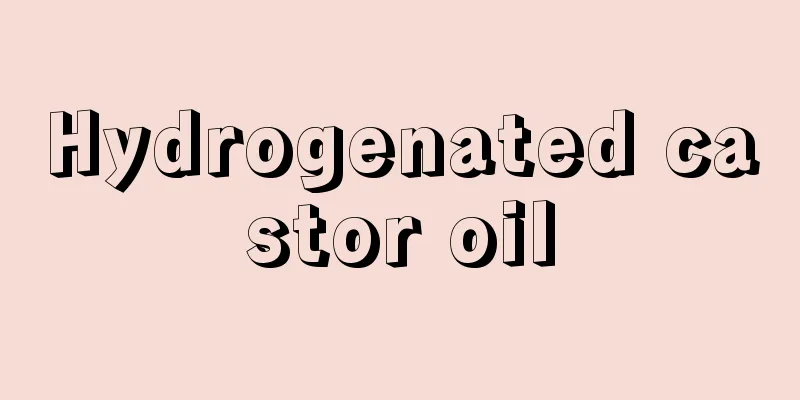Hydrogenated castor oil

|
Hydrogenated castor oil is made through the hydrogenation method. Its main component is 12-hydroxystearic acid triglyceride, which is a light yellow or white powder. It is slightly soluble in dichloromethane, insoluble in petroleum ether and insoluble in water. It has a wide range of uses. It is often used as a sustained-release agent or thickener in pharmaceutical preparations, and is often used to treat suppositories, tablets, pills, etc.
Pharmaceutical excipients. This product plays the role of thickening, hardening and sustained release in the preparation, so it is used as a thickener, hardener and sustained release agent for the preparation of semi-solid preparations and solid preparations, such as ointments, suppositories, pills, tablets, etc. This product is mainly used as a hardener for ointments, creams and suppositories to adjust the consistency of the preparations; in oral preparations, it is mainly used to prepare sustained-release tablets and capsules. This product can be used as a coating film or form a solid skeleton to achieve sustained or controlled release; it can also be used as a lubricant for tablets and capsules to improve the fluidity of particles. Application examples of pharmaceutical excipient hydrogenated castor oil 1. Used as sustained-release material 1. Naproxen controlled-release tablets Immediate-release granules formula: naproxen 300 mg, lactose 880 mg, PVP 18 mg, starch 30 mg, sodium carboxymethyl starch 18 mg, magnesium stearate 1.2 mg; Controlled release granules formula: naproxen 450 mg, hydrogenated castor oil 171 mg, ethyl cellulose 54 mg; The above two kinds of granules are mixed and compressed into tablets. 2. Long-acting potassium chloride tablets Take the prescribed amount of potassium chloride crystals and suspend them in molten cetyl alcohol, hydrogenated castor oil and stearic acid. Stir until it is almost solidified and pass through a 20-mesh sieve to form granules. The granules are then mixed with gelatin solution and passed through a 10-mesh sieve to form granules. After drying at room temperature, add lubricant and press into tablet cores, and finally coat with sugar.
Take 90g of hydrogenated castor oil, disperse it into particles with a diameter of 1.5μm using a micro-powder grinder, and immediately mix it with 8g of hydroxypropyl cellulose. The mixture is mixed with 20g of 10% hydroxypropyl cellulose and 43g of water to make granules, and dried at 50°C to obtain granules A; take 2.5g of the above mixture A, add 7.5g of the main drug to make granules B; take 5.9g of lactose, 3g of microcrystalline cellulose, 0.1g of magnesium stearate and 1g of the main drug to make granules C; mix granules A, B and C and press them into tablets. 4. Sustained-release coating material Specific drugs need to be coated to achieve a sustained-release effect. Hydrogenated castor oil is one of the commonly used sustained-release materials, and its general usage is 5.0%-20.0% of the total weight of the coating.
Hydrogenated castor oil can be used as a lubricant for tablets. Although its lubricating effect is not as good as that of magnesium stearate, hydrogenated castor oil is the best choice for a small number of tablets that become sticky during the tableting process. For example, clopidogrel hydrogen sulfate tablets require hydrogenated castor oil as a lubricant. In fact, most drugs with strong polarity (strong hydrophilicity) and drugs that are prone to causing spots during tableting can use hydrogenated castor oil as a lubricant, which can not only play a lubricating role, but also prevent sticking and punching, and also play a hydrophobic role and is not easy to cause spots. Hydrogenated castor oil is generally used as a lubricant by external addition, and the dosage is generally 0.2%-2%. 3. Used as an ointment or suppository base Various vegetable oils such as castor oil, sesame oil, peanut oil and tea seed oil are often used as solvents or oil phase matrices in pharmaceutical preparations. However, since vegetable oils are easily oxidized and rancid, which affects the long-term stability of pharmaceutical preparations, in order to solve the problem of vegetable oils being easily oxidized and rancid, studies have found that after vegetable oils are hydrogenated, the product is not easily oxidized or rancid, and its oil properties do not change significantly. Therefore, among ointments and suppositories, those that require vegetable oil or liquid paraffin can use hydrogenated castor oil. Since hydrogenated castor oil is a waxy solid and has a higher viscosity after melting, it can greatly reduce the amount of fat or oil phase used, and the ointment will be smoother and more delicate. |
Recommend
How to clean red wine dripping onto white clothes?
Everyone has white clothes in their wardrobe. The...
How to wear a disposable mask and what are the steps for wearing it
How to wear a disposable mask correctly is what m...
What are the benefits of washing your face with honey and salt
Many girls like to wash their faces with honey. A...
Why can't you live together after medical abortion
Medical abortion is a common method of abortion f...
Effects of Lotus Stamens
In our lives, many people like lotus flowers, bec...
Experts explain the methods of treating lung cancer
Lung cancer is a common disease in our lives, but...
Does wearing contact lenses harm your eyes?
Have you ever suddenly discovered that one day yo...
What are some practical common sense in life?
Many young people, due to their lack of life expe...
How to clean your nose without picking it
In life, some people will have some nasal boogers...
What are the ways to prevent lung cancer? Is it necessary to quit smoking to prevent lung cancer?
Lung cancer is the number one killer that affects...
What are the effects and functions of fried broad beans?
Broad beans are also called Hu beans, Buddha bean...
Is tongue cancer hereditary? What are the causes of tongue cancer?
Tongue cancer is not hereditary. It is related to...
How much does it cost for a child's colorectal cancer to recur
The human body eats every day, and after eating, ...
What are the harms of soaking wolfberry in water?
Wolfberry is a traditional Chinese medicine. It c...
What's wrong with the neuralgia on half of my face
If you experience neuralgia on one side of your f...









